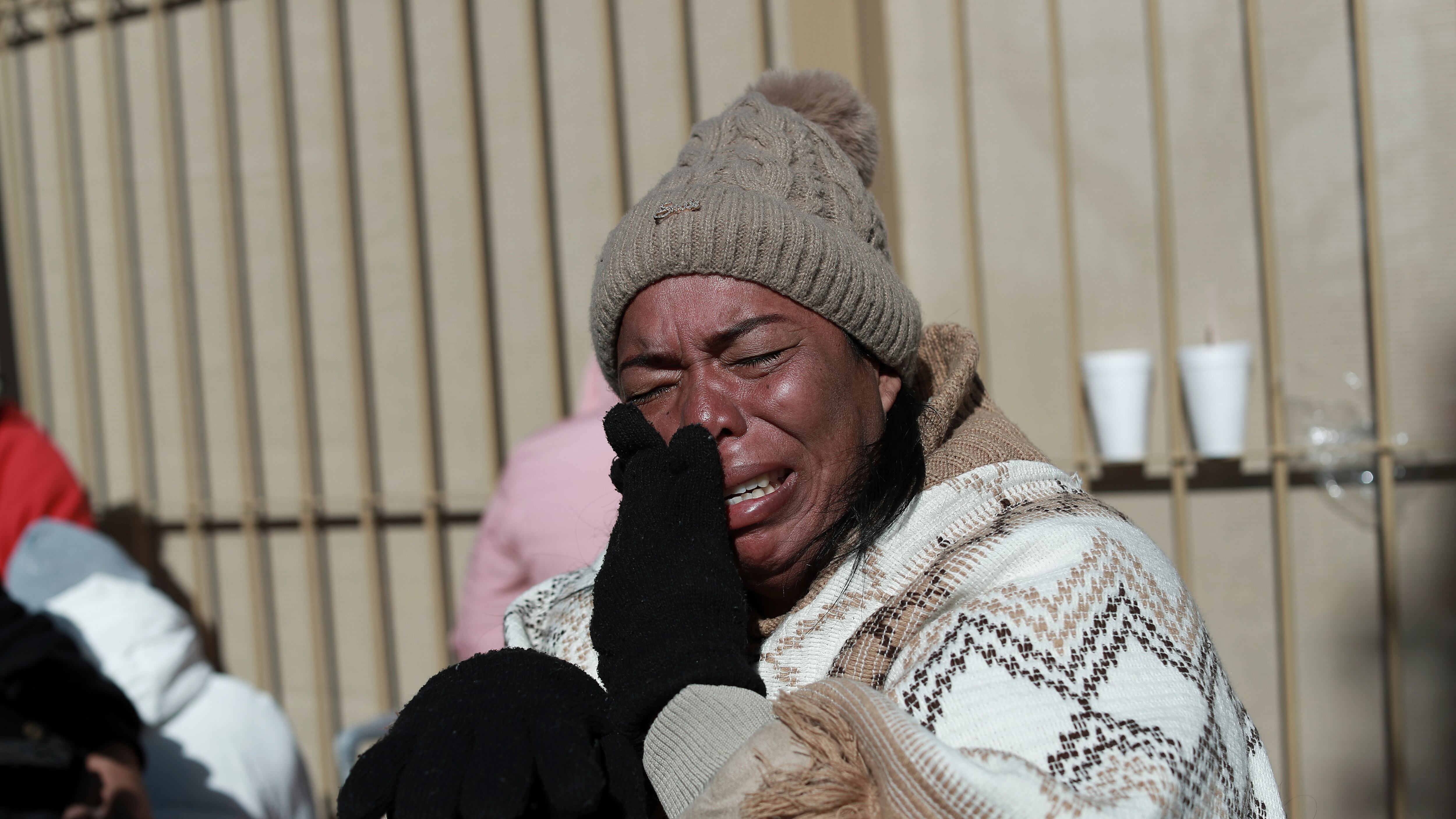They came from Haiti, Venezuela, and other parts of the world, dragging their small suitcases filled with clothes and toys to keep their children entertained. They clung to their cell phones that showed that, after several months of waiting, they finally had appointments to enter the United States legally.
PUBLICIDAD
Now, outside several border crossings in northern Mexico—where mazes of concrete walls and thick fences eventually lead into the United States—hope and excitement turned into despair and disbelief on Monday moments after President Donald Trump took office.
PUBLICIDAD
The United States Customs and Border Protection (CBP) announced on Monday that the CBP One app, which was still in operation earlier this morning, would no longer be used to allow the entry of migrants, after the service facilitated the entry of nearly 1 million people since January 2023.
Tens of thousands of appointments that were scheduled until February were canceled, applicants were informed.
That was it. There was no way to appeal, and no one to talk to.
In Tijuana, where 400 people were admitted daily in the application at a border crossing with San Diego, María Mercado had to muster up the courage to check her phone.
Once she dared to look, tears began to fall down her cheeks. Her family had a scheduled appointment for 1 in the afternoon, a couple of hours too late.
"We don't know what we are going to do," he said with his family, just a few meters from American soil.
Mercado left Colombia several decades ago after the country was invaded by drug trafficking violence and headed towards Ecuador. When the cartels besieged their new home, the family fled again last June, this time to Mexico with the hope of reaching the United States.
"I ask for nothing from the world —I only ask God. I ask God to let us in, please. Only God can help us," he added.
The CBP One app has been extremely popular, especially among Venezuelans, Cubans, Haitians, and Mexicans. Now, all of them were stranded at the border with the United States or in other parts of Mexican territory.
Jairol Polo spent six months trying to get an appointment from Mexico City, until he finally got one for Wednesday in Matamoros, bordering Brownsville, Texas. The 38-year-old Cuban took a flight on Monday from the Mexican capital only to find out upon arriving at the border that his appointment had been canceled.
The people who had appointments in the morning passed as scheduled. Andrum Román, a 28-year-old Venezuelan, was part of the last group to cross the border with a CBP One appointment in Ciudad Juárez, on the other side of the Rio Grande with El Paso, Texas.
Before handing over his documents, he expressed that he felt a little safer now on American territory, but he still felt overwhelmed by uncertainty.
In the afternoon, the app was no longer working.
CBP One is essentially a lottery system that grants 1,450 appointments per day at one of eight border crossings. People enter the United States under a conditional permit, a presidential power that former President Joe Biden used more than any other president since the measure was introduced in 1952.
Its disappearance adheres to Trump's campaign promises and will please opponents of the measure, who consider it an excessively generous magnet that attracts people to the border between Mexico and the United States.
Despite facing issues during its launch in January 2023, it quickly became a key element of the Biden administration's border strategy to expand legal pathways while tightening asylum for those entering the country illegally. Supporters claim that it brought order amid the chaos of illegal border crossings.
Many migrant shelters in Mexico are currently occupied by people who daily entered their phones hoping to get an appointment. The CBP indicates that around 280,000 people try daily to obtain one of the 1,450 spaces.
The disappearance of CBP One is combined with the return of the "Remain in Mexico" policy, a remnant from Trump's first term that forced around 70,000 asylum seekers to wait in Mexico until their court hearing date in a US immigration court.
Matthew Hudak, who retired last year as deputy chief of the Border Patrol, said that the disappearance of CBP One could encourage people to cross illegally. In order for this to be effective, it must be accompanied by something like "Remain in Mexico," he stated.
"The message with the closure of CBP One is basically, 'Hey, we are not going to allow you to show up; the door will not be open.' For that to make sense, there must be some level of consequence if you avoid any legal means and do it illegally," he explained.
The news of the abrupt end of CBP One shocked migrants throughout Mexico.
Juan Andrés Rincón Ramos, a 19-year-old Venezuelan, cried tears of joy in early January when he obtained an asylum appointment through CBP One after trying for months. It was a ray of hope after five years in Peru and seven months in Mexico in his attempt to reach the United States, where his brother lives.
In the makeshift migrant camp in Mexico City where he lives, the fantasy of a life he dreamed for himself evaporated when he received the notification that his appointment had been canceled.
“It was a moment of hope, but it didn’t last long,” he declared. “Everyone trusted in the American dream, but we were all wrong.”
